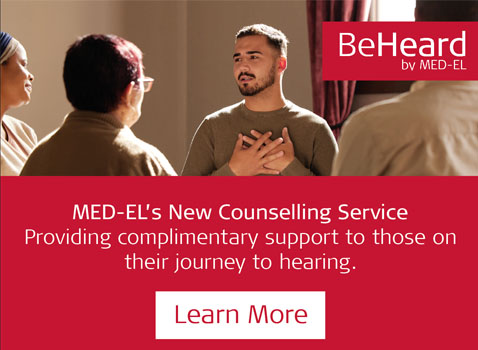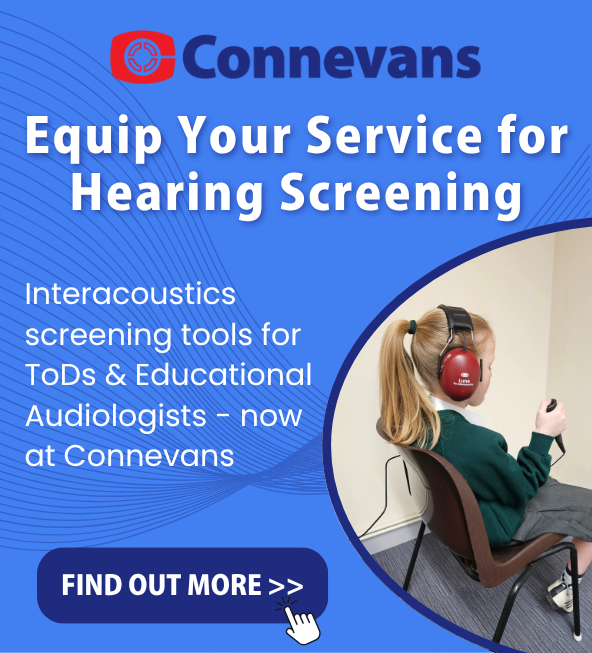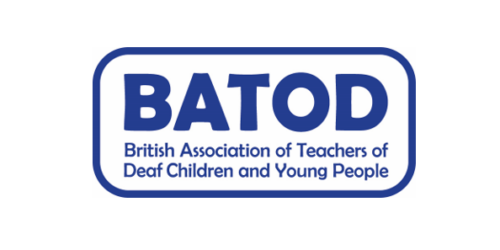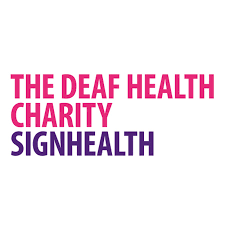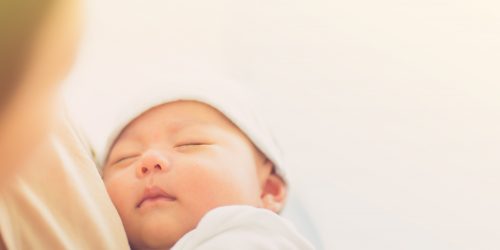BATOD Magazine 2025
You can download the magazine here
Please note the BATOD magazine is part of the BATOD membership offer. Just as we ask in the magazine to not share the paper copies with non-members, please do NOT share the electronic copy of the magazine with non-members, this includes on university social media platforms; NatSIP HoSS, Deafeduk, Scottish Sensory Centre forums, or other public access platforms. Most articles are available as a standalone copy and can be requested via the Editor, Susie Marques ([email protected])
March 2025 issue
SPOTLIGHT
Looking back at the 27th FEAPDA Congress, 2024 2
Madeline Hickey and John Culhane share their report on the 2024 Joint Congress with FEAPDA, BATOD National, and NCSE, held at the Grand Hotel in Malahide, Dublin in April 2024. The second part will feature in the June edition of BATOD Magazine. The Congress focused on the theme of ‘Exploring the diversity of deaf1 learners in their many lives: implications for our knowledge and practice’.
TRANSITIONS
Hearing screening 8
Isabel Azevedo, QTMSI, provides an insight into the successful hearing screenings that took place at Linden Lodge School which is a specialist day and residential school for children with vision impairment, deafness, and multi-sensory impairment and with a team is committed to adapting teaching strategies to meet the unique needs of our diverse learners.
A pilot project to develop time efficient support for families following hearing aid fittings for OME 10
Sarah Evans and Katy Mitchell share an overview of Bristol Sensory Support Service’s response to the new NICE Guidelines on otitis media with effusion (OME), supporting families with a glue ear resource pack. As a support service, they are keen to provide parents and carers along with early years practitioners with all the information that they need to be able to support a child with glue ear, while acknowledging capacity-related issues in the amount of time available to do this.
The educational experiences of pupils with Down syndrome 13
Dr Kelly Burgoyne shares an overview of her recent research that used surveys to learn more about the educational experiences of pupils with Down syndrome in the UK, many of whom experience some degree of deafness. This article summarises key findings from data collected using an online survey of parents, teachers, and teaching assistants working with pupils with Down syndrome in United Kingdom (UK) schools in 2019–2020.
Access to Work and the time the dog ate my hearing aids 16
Sarah Hercod, QToD, shares a very personal account of transition into employment covering all the highs and lows and how much the right equipment has helped her navigate the world. This article was first published on the Limping Chicken blog and has been reprinted with permission as an article for BATOD.
Supporting deaf young people in their transition through education 18
Katherine Clements, Assistant Principal of Mary Hare School, discusses how children and young people at the school are supported in navigating transitions throughout the different settings, such as by ensuring that an individual approach is central to all transition plans and creating appropriate resources to support and develop resilience with deaf friendly and accessible language
Deaf awareness starts in the early years 22
Vicky Lowther, a Qualified Teacher of Deaf Children and Young People and Jason Trotter, a Deaf Communication Support Worker, discuss their work on raising deaf awareness in the early years – starting from nursery, and remind us that … Deaf Awareness starts in the early years! This article was first printed in the CICS July 2024 edition.
Empowering Deaf students: a new vision for specialist education 23
Natalie Pollard, British Sign Language Manager at Doncaster Deaf Trust, shares her thoughts on Communication Specialist College Doncaster’s new dedicated Deaf provision which is a transformative space that represents everything we believe in: culture, identity, communication, and empowerment.
Inclusive environments 24
Joy Ainsley, Educational and Clinical Audiologist, explores the relationship between speech-in-noise challenges faced by deaf and autistic pupils at St John’s Catholic Specialist School. For deaf children, auditory development can be further delayed due to factors such as the cause, onset, and degree of deafness, similarly, children with autism spectrum condition may experience similar delays. Both groups have distinct needs which are rarely addressed by standard mainstream classroom designs.
Adjusting to an ASD diagnosis for my deaf son (BSL) 27
Keighley Miles, a deaf mum to three boys, originally wrote this article for Limping Chicken and has given permission for this reprint in BATOD Magazine. She describes her life as a profoundly deaf mum of three boys, one of whom is also deaf, and one son who has been diagnosed with autism. She emphasises the frustration of finding the right diagnosis after finding many of his problems being put down to deafness.
GENERAL
Exploring accessibility in gaming for deaf gamers: challenges and recommendations 28
Hasan Demirel outlines his research on the challenges facing deaf gamers and his recommendations for greater accessibility for deaf and hard-of-hearing gamers which remains an area requiring significant attention. This report explores the challenges and the accessibility features they find beneficial, and offers recommendations for game developers to create more inclusive gaming experiences.
BSL: a cultural legacy of Quintilian and the Romans? 30
Peter R Brown, a BSL Teacher Co-ordinator and Deaf Historian at City Lit, discusses the historical roots of BSL in ancient civilisations, including Quintilian who published a handbook which explained how to appropriately use gestures as a powerful tool to reinforce their speech to explain and argue with the audience. It involved about 24 different handshapes, along with different movements from the parts of the face such as the eyebrows, the arms, the legs, and the head.
Meet… the first deaf UK Youth Ambassador for the Duke of Edinburgh’s Award 33
Freya Fredriksson shares her journey to becoming the first deaf UK-wide Youth Ambassador for the Duke of Edinburgh’s Award (DofE), inspiring more deaf children and young people to follow in her footsteps enjoying the amazing opportunities which helped push her out of her comfort zone. She has now been camping, written a story and raised money for deaf children’s charities by doing sponsored cross-country running.
Tackling taboos and breaking barriers in relationships and sex education 35
Dolly Padalia, School of Sexuality Education, shares how inclusive relationships and sex education (RSE) can be life-changing for young people and how the charity is investing in developing British Sign Language and Sign Supported English RSE workshops for schools which will help them in discussing topics such as sexual health, consent, and pornography.
Characterisation of the treatment provided for children with UHL 38
Roshni Patel and Sally Thornton, University of Nottingham, report on their study that aimed to characterise treatment for children with unilateral hearing loss (UHL) who are a very diverse group of children in terms of their aetiology, degree of loss, and their treatment options, so their management is often not straightforward. This article was first published in the British Society of Audiology’s Audacity publication in March 2024.
Working together for children with glue ear 41
Katy Mitchell, Education Advisor at the Ewing Foundation, and Jen Royds, a parent–carer of two daughters, one of whom has Down syndrome, introduce their charity, Glue Ear Together, founded in 2023. The organisation aims to provide accessible information about glue ear to parents and professionals on “its possible impact on the child’s hearing, listening, language development, behaviour, and emotional and social wellbeing.
Demystifying bone conduction and middle ear devices 45
Marsha Jenkins, Principal Clinical Scientist (Audiology) at St Thomas’ Hearing Implant Centre (Paediatric), details bone conduction and middle ear devices for patients unable to use other assistive listening devices. This article was first published in the British Society of Audiology’s Audacity publication in March 2024.
Pawsitive change: animal-assisted therapy in action 48
Angela Howgate, DQToD, shares the benefits of animal-assisted therapy for children and young people who are d/Deaf, or have vision or multi-sensory impairments. She also introduces us to Bella, their trained therapy dog and her handler, who was able to communicate using British Sign Language (BSL), which allowed for individualised support tailored to each child’s needs, fostering trust and independence.
Why can’t we just give deaf people a leaflet? 51
In the first of a mini-series of reprinted articles from the AIMS (Association for Improvements in the Maternity Services) Journal, Alex Smith, Editor, shares some key points for deaf awareness to provide better access and support for d/Deaf people, many of whom find written information challenging and unhelpful and which does nothing to elicit the hopes, fears, and aspirations of the individual, and does not usually remind the person of their right to accept or decline some or all elements of the care described. Reprinted with permission from the AIMS Journal (2024), Vol 36(4).
COURSE PROVIDERS
Into the home straight 56
Dr Emmanouela Terlektsi and Angie Wootten provide an overview of the PGDip/MA University of Birmingham course which offers a flexible distance-learning approach (students can study from any part of England/the UK and abroad), including online interactive materials in combination with online group tutorials, and face-to-face, hands-on workshops. We are currently in the second year of running the newly accredited and restructured programme and can truthfully say that the changes have been very well received by students as well as by internal and external collaborators.
Recognising the unique disability of deafblindness (multi-sensory impairment) 59
Hester Richardson, Programme Lead at the University of Birmingham, introduces an updated approach providing a vibrant, ‘transformative’ course, where students are encouraged to build their practical skills through their ongoing professional experiences, as well as through reading, discussion, reflection, visits, and teaching practice. The new format of the course aims to equip graduates with a ‘toolbox’ of skills, practice, and theory, which can be combined to respond flexibly to the wide range of children, families, and settings affected by multi-sensory impairment.
Study at the University of Edinburgh to become a QToD! 62
Rachel O’Neill outlines the University of Edinburgh’s deaf education pathway for those wanting to gain a Postgraduate Diploma in Deaf Education and qualify as a QToD and learn about ways of critically examining concepts affecting deaf people’s lives such as equality, disability, community, and access. Students enjoy meeting a wide range of deaf people on this course to consider their perspectives. They undertake a mini project for this course that introduces them to research methods.
New university partner for historic high-quality training at Mary Hare 64
Sarah Davis and Dr Joy Rosenberg from Mary Hare announce their exciting new partnership with Liverpool John Moores University for their two postgraduate courses: PGDip Teaching Deaf Learners and PGDip Educational Audiology which offer evidence-based lectures and a strong practical aspect, including work-based placements and hands-on audiology learning that students find are a very beneficial opportunity for consolidating learning.
Postgraduate Diploma MQ in MSI/Deafblindness 66
To offer breadth and choice to educators wishing to specialise in multi-sensory impairment (MSI) the Department for Education (DfE) confirmed Seashell Trust and Liverpool John Moores University (LJMU) in 2023 as a provider of the Postgraduate Diploma Mandatory Qualification in MSI/Deafblindness. The course successfully launched with its first cohort in Autumn 2024.
Manchester Deaf Education 67
Dr Helen Chilton and Dr Lindsey Jones, Senior Lecturers in Deaf Education, outline the offer from the University of Manchester which ensures learners have access to a wide and varied curriculum that is underpinned by a strong ethos of research to practice and and provides opportunities for the students to apply their knowledge to real life contexts.
INTERNATIONAL
Through an international lens 70
Janet DesGeorges, Hands & Voices and The Global Coalition of Parents of Children who are Deaf or Hard of Hearing, discusses the essential role of parental engagement which may not occur naturally but is something that is learned over time and modeled by other parents and the professionals that serve them. Parents across the globe, whether they come from a culture where terms like ‘leadership’ and ‘advocacy’ are not typically ascribed to the parent voice, have learned and taken on their role in partnership with professionals to ensure good services for children and young people who are deaf or hard of hearing.
REGULARS
Meet… an Advanced Bionics Consumer Engagement Specialist 73
Rebecca Bentley details her alternative pathway into deaf education shaped by a blend of academic study, hands-on experience, and a deep-seated passion for supporting deaf children. My role has evolved into diverse career opportunities, demonstrating the many pathways available in this field.
Meet… an AIMS for a better birth volunteer 74
Alex Smith, a childbirth educator and editor of the Association for Improvements in the Maternity Services (AIMS) journal, shares her journey to being an AIMS better birth volunteer, working towards a future where every family has a positive maternity experience where they feel informed, heard, and respected.
REGULARS
Representing you 84
BATOD membership 85
You can download the magazine here
Please note the BATOD magazine is part of the BATOD membership offer. Just as we ask in the magazine to not share the paper copies with non-members, please do NOT share the electronic copy of the magazine with non-members, this includes on university social media platforms; NatSIP HoSS, Deafeduk, Scottish Sensory Centre forums, or other public access platforms. Most articles are available as a standalone copy and can be requested via the Editor, Susie Marques ([email protected])
June Edition
You can download the magazine here
Progress is built on collaboration IFC
Claire Jacks highlights the importance of continuing professional development (CPD), along with the wide range of training opportunities, events, and resources on offer from the Association for members wanting to advance or update their skills and knowledge in deaf education.
CONFERENCE
Looking back at the 27th FEAPDA Congress, 2024 2
Madeline Hickey and John Culhane share the second part of their report on the 27th FEAPDA Congress Joint Congress in 2024 with BATOD and NCSE.
Education Authority Northern Ireland Speech to Text Captioning initiative 29
Conor Mervyn and Anne Marie Kerrigan discuss their presentation ‘An innovative project designed to assist deaf and/or hard of hearing young people is currently being piloted by the Education Authority in five schools’.
BATOD North Study Day – ‘In your hands’ 30
Kim Davis, Lead QToD for the Leeds Sensory Service, reports on the on the 2024 BATOD North Study Day in October 2024 which had a varied and exciting selection of workshops.
BATOD South West 2024 event 34
Jayne Loader, Senior Advisory Teacher of the Deaf, reports on BATOD South West’s 2024 conference in Torbay which focused on four aspects of the new Deaf Specialist Curriculum Framework – deaf identity, social and emotional, communication and language, and specialist assessment and monitoring.
Assessment and deaf learners 37
Dr Lee Fullwood, Qualified Teacher of Deaf Children and Young People (QToD), provides an overview of the content from his presentation at the BATOD South West 2024 Study Day which discussed how psychometric testing can disadvantage deaf students and suggests an alternative in dynamic assessment.
Connection of ALDs to external accessories 39
Brian Copsey from the Assistive Listening Technology Working Group (ALTWG) gives an update on connecting assistive listening devices (ALDs) to external accessories.
SPOTLIGHT
The role of a BATOD Magazine proofreader 41
Fancy volunteering as a BATOD proofreader? Jaime Cohen and Susie Marques discuss their roles as proofreaders and provide details on how to join the proofreading team which is a crucial part of preparing the BATOD Magazine.
GENERAL
Deaf students lead the way in police awareness training 46
The Deaf Academy in Exmouth reports on its innovative, student-let project that aims to improve communication between police officers, support staff, and Deaf people from highlighting the impact of arresting a Deaf individual – where the use of handcuffs removes their ability to use British Sign Language (BSL) – to teaching essential BSL phrases, the students have created an educational video that will be used in police training across the country.
Devon special school receives national award in recognition of best practice 48 The Deaf Academy in Exeter reports on its recent Natspec award for its student-led campaign to improve road safety which had a positive and material impact on students, the Academy, the community, and also nationally.
Personal Understanding of Deafness (PUD) updated 50
Dr Jackie Salter and Caroline Chettleburgh from the University of Leeds update us on the Personal Understanding of Deafness (PUD) resource, now available as a PDF on the BATOD website. PUD was developed over several years starting with a simple checklist of audiological management skills and expanded to include other strands to capture a broader skill set to support effective communication.
Support for deaf and deafblind women in the maternity setting 52 Lesley Weatherson, a British Sign Language (BSL) interpreter and qualified midwife and nurse, shares her views on communication support and accessibility for deaf and deafblind women in maternity settings
This article first appeared online on the Maternity & Midwifery Forum in September 2022 and is reprinted here with permission from the AIMS Journal (2024), Vol 36(4).
Pregnancy and hearing: Did you know? 56
As part of the second instalment of a mini-series of reprinted articles from the AIMS (Association for Improvements in the Maternity Services) Journal, Alex Smith highlights the challenges facing d/Deaf women in pregnancy and childbirth.
Reprinted with permission from the AIMS Journal (2024), Vol 36(4)
Deaf BSL parents and parenting assessments in the context of safeguarding/child protection 59
Rosemary Oram, a Doctor of Philosophy (PhD) social work student at the University of Manchester, discusses her research into the high incidence of parenting assessments of Deaf parents who use British Sign Language (BSL) and which found inadequacies in the current framing of child protection and safeguarding work and that the referral and allocation processes do not acknowledge the needs of Deaf parents and their families in terms of language and culture.
National Deaf CAMHS deaf autism assessment 61
Laura Vaccari, a speech and language therapist and clinical audiologist at National Deaf Child and Adolescent Mental Health Service (CAMHS), details her recent research into the challenges of the deaf autism assessment process which increases the likelihood that deaf children may be incorrectly diagnosed, missed completely, or not have access to necessary interventions and support as early as hearing children.
Interview with Caroline Read, Founder of Communicate-ed 64
Caroline Read, one of the founders of Commicate-ed, discusses the organisation’s work in training professionals in the area of exam access arrangements for children and young people with special educational needs and disabilities (SEND)
An INSET day on acoustics to promote good listening environments 66
Sarah Evans and Katy Mitchell share an overview of Bristol Sensory Support Service’s in-service (INSET) day on acoustics with key speakers, David Canning and Tim Simmons which promoted understanding the benefit that acoustic improvements can have on outcomes, and the perceived benefits for deaf children and young people and teaching staff.
COURSE PROVIDERS
What is happening at the University of Leeds 70
Helen Niemec and Professor Ruth Swanwick update us on the course offers at the University of Leeds which aim to develop the knowledge, understanding, and skills that will enable QToDs to critically evaluate learning situations and develop clear justified approaches to supporting deaf babies, children, and young people’s development.
INTERNATIONAL
The gift of choice for a child who is deaf or ‘hard-of-hearing’ in Western Kenya to develop listening and spoken language 73
Rosie Gardner, Auditory-Verbal Therapist (AVT), Qualified Teacher of Deaf Children and Young People (QToD), and former Head of Service, updates us on her continuing work in Kenya.
REGULARS
Meet… a specialist electronic notetaker 76
Marion Dawson discusses her role as an electronic notetaker (ENT) for deaf and disabled people along with training opportunities for anyone interested in pursuing this career.
Regions and nations 77
Representing you 80
BATOD membership 81


